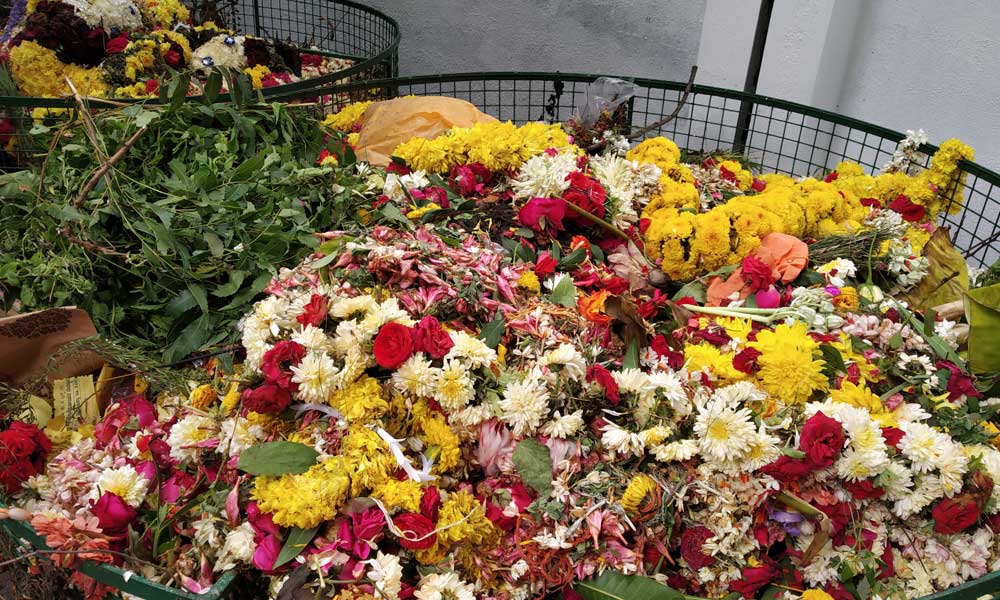Context:
Recently, Floral Waste has emerged as a way of boosting the circular economy and employment opportunities in India.
Key Highlights
- The floral waste sector in India is experiencing significant growth, driven by its numerous benefits.
- This sector not only provides meaningful employment opportunities for women but also effectively diverts waste from dumpsites, contributing to environmental preservation.
- As India progresses towards sustainability and a circular economy, the focus on transforming waste into wealth is becoming increasingly important.
What is a Circular Economy?
- The circular economy is a model of production and consumption that emphasizes sharing, leasing, reusing, repairing, refurbishing, and recycling existing materials and products for as long as possible.
- This approach extends the life cycle of products and reduces waste, thus promoting sustainability.
Environmental and Health Impacts of Floral Waste
- Floral waste, mostly biodegradable, often ends up in landfills or water bodies, causing health hazards and harming aquatic life.
- According to a UN Climate Change report, the river Ganga alone absorbs over 8 million MT of flower waste annually.
How can Floral Waste Contribute to Employment and Sustainability?

- Under the Swachh Bharat Mission-Urban 2.0, several Indian cities are implementing innovative solutions to address the floral waste issue.
- Implementing composting pits in temples and involving temple trusts and self-help groups (SHGs) in recycling efforts can create significant employment opportunities.
- The “Green Temples” concept can be integrated into policies to transform temples into eco-friendly spaces.
- The National Horticulture Board can be involved in tracking and managing floral waste in green spaces like parks.
Success Stories on the Road to a Circular Economy
Ujjain’s Mahakal Temple
- Mahakal Temple generates 5-6 tonnes of waste daily, collected by ‘Pushpanjali Econirmit‘ vehicles and processed into eco-friendly products.
- Women from Shiv Arpan Self-Help Group craft items from waste and also use it for making briquettes, compost, and biofuel.
- Ujjain Smart City’s 2022 report shows 2,200 tons of floral waste treated, yielding more than 3 crore incense sticks.
Kanpur
- Phool (floral waste recycling company), based in Kanpur, collects floral waste daily from Ayodhya, Varanasi, Bodh Gaya, Kanpur, and Badrinath, totalling nearly 21 MT weekly.
- They transform this waste into incense sticks, cones, and other products, providing women with secure jobs and benefits like fixed salaries, provident funds, transportation, and healthcare.

